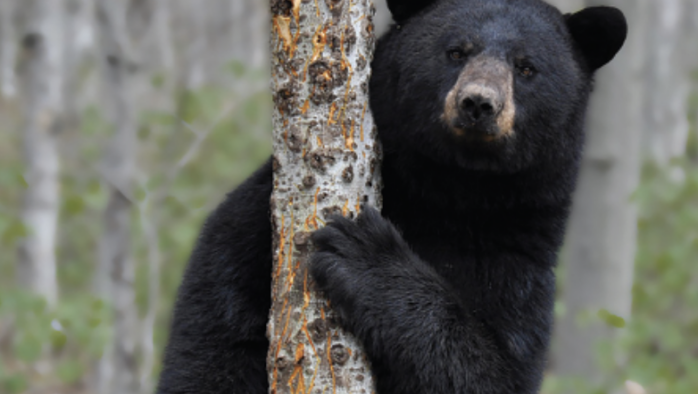Vermont’s black bear population is estimated at 7,000 to 8,500 based on 2022 data, the most recent available, according to the Vermont Fish and Wildlife department (VTF&W).
“It is important to look at the 2022 population estimate as part of the typical cycles of growth and decline in a bear population that is stable over the long term,” said wildlife biologist and Black Bear Project Leader Jaclyn Comeau. “The 7,000 to 8,500 bear estimate for 2022 is a five-year high. We will be watching closely in the coming few years to see if the population drops as we have seen it do before, after high years in previous cycles.”
Comeau stressed that the current population estimate is not a basis for changes to Vermont’s bear management at this time. She added that today’s robust bear population is the result of a decades-long research and conservation effort that includes land protection, regulated hunting and significant public education on proactive conflict prevention.
As recently as the early 1970s Vermont’s bears were found only in mountainous areas and the Northeast Kingdom, and likely numbered between 1,500 and 3,500. Today they are found in every Vermont town except for communities on the Lake Champlain Islands. Since the mid-1990s the population has been relatively stable, fluctuating from 4,000 to 7,500 bears in consistent cycles of growth and decline. The population has seen steady growth since 2019.
“Taking active steps to coexist with bears is our responsibility as Vermonters,” said Comeau. “That means respecting these powerful animals as an important part of our native biodiversity, using proactive conflict prevention strategies like keeping human food out of bears’ reach, and relying on a scientifically regulated hunting season to keep the bear population in line with Vermont’s social carrying capacity.”
The department’s bear population model uses age and sex data from hunter harvests and non-hunting mortalities like vehicle strikes to estimate the population and account for model uncertainty. Because the model relies on annual data from hunters, it lags one year behind the current hunting season.
“Hunter harvest data are used by state fish and wildlife agencies to model bear populations nation-wide,” said biometrician and Research Program Manager Katherina Gieder. “We are confident in our bear population model estimates because they consistently match what other data indicate about the population trend over time. Model certainty has also increased in recent years, especially since making it mandatory for bear hunters to submit a tooth from their harvest to the department in 2018. It’s a good example of how community science can directly inform wildlife conservation.”





